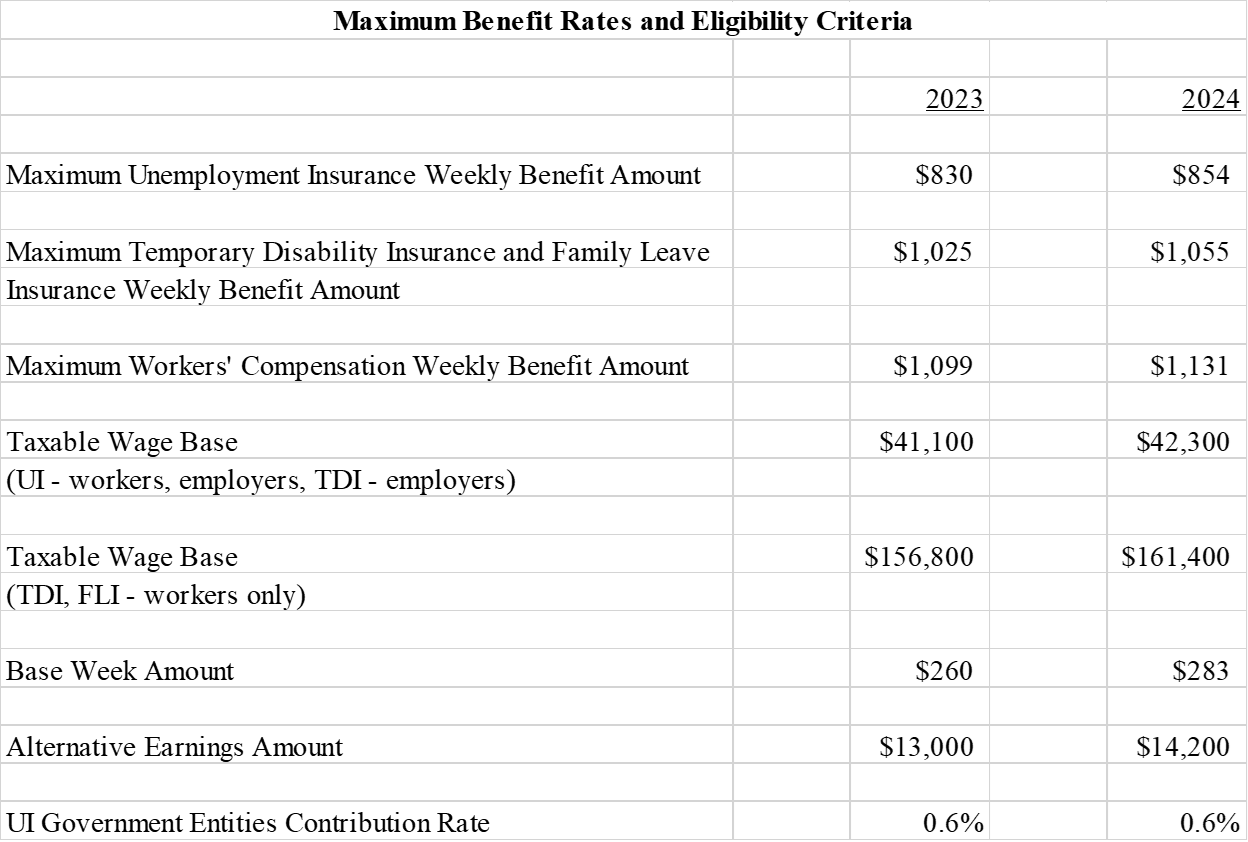New Jersey’s Minimum Wage to Exceed Governor Murphy’s $15/Hour Goal on January 1
FOR IMMEDIATE RELEASE
December 27, 2023
TRENTON – New Jersey is set to become one of a handful of states with a minimum wage of at least $15/hour on January 1, 2024 when the rate increases to $15.13/hour, surpassing the goal set by Governor Murphy and the Legislature in 2019.
The increase affects about 350,000 of New Jersey’s roughly 1.9 million hourly workers. Many non-hourly employees will also see at least an indirect benefit from the statewide increase that applies to most workers.
“Raising the minimum wage has been a top priority of mine since day one,” said Governor Murphy. “There is no doubt that inflation has had an impact on every New Jerseyan. Now that we are close to surpassing the $15 per hour milestone, it’s important that we continue to ensure that everyone working in New Jersey has access to a livable wage.”
“Raising and aggressively enforcing the minimum wage signals to employers and workers alike that New Jersey values its workforce,” said Labor Commissioner Robert Asaro-Angelo. “While our Department’s Workforce efforts try to ensure workers receiving minimum wage are only doing so for a small part of their career, this is a proud moment for New Jersey as we become one of the few of states with a minimum wage above $15 an hour that will continue to be adjusted each year for inflation."
Under the law, some employers are allotted more time to reach the $15/hour minimum wage. For example, seasonal employers and businesses with six or fewer employees have until 2026 to pay their workers at least $15/hour. The minimum hourly wage for these employees will increase to $13.73/hour on January 1, up from $12.93/hour.
Agricultural workers are guided by a separate minimum wage timetable and were given until 2027 to reach the $15/hour minimum wage. Employees who work on a farm for an hourly or piece-rate wage will see their minimum hourly wage increase by 80 cents to $12.81/hour, up from $12.01/hour. Additionally, long-term care facility direct care staff will see their minimum wage rise by $1, to $18.13/hour.
Tipped workers’ cash wage will remain at $5.26/hour, with employers able to claim a $9.87 tip credit, an increase of $1. If the minimum cash wage plus an employee’s tips do not equal at least the state minimum wage, the employer must pay the employee the difference. Read more about the rights and protections of tipped workers here.
The New Jersey Department of Labor and Workforce Development (NJDOL) sets the minimum wage for the coming year using either the rate specified in the law or a calculation based on the Consumer Price Index (CPI), whichever is higher. The state Constitution specifies that the minimum wage will continue to be adjusted annually based on the CPI.
NJDOL also announced changes in the maximum benefit rates and taxable wage base for its Unemployment Insurance (UI), Temporary Disability Insurance (TDI), Family Leave Insurance (FLI), and Workers’ Compensation programs.
Starting on January 1, the maximum weekly benefit amount for UI beneficiaries increases to $854, from $830. The maximum weekly benefit for state plan TDI and FLI claims increases to $1,055, from $1,025, while the maximum weekly benefit for Workers’ Compensation rises to $1,131, from $1,099.
The maximum benefit rates and the taxable wage base are recalculated each year based on the statewide average weekly wage, under the laws governing these programs. The benefit rates and taxable wage base for 2024 reflect the $1,507.76 average weekly wage for 2022, which rose by 2.9 percent from $1,465.18 in 2021.
The level of wages subject to wage taxes in 2024 increases to $42,300 for employers covered under the Temporary Disability Insurance program and for workers and employers covered under the Unemployment Insurance program, the Workforce Development Partnership Program, and the Supplemental Workforce Fund for Basic Skills.
The taxable wage base for workers covered under the Temporary Disability and Family Leave Insurance programs increases to $161,400 for 2024.
Click here for more information on TDI/FLI or UI, or see the chart below showing the 2023 rates and the changes taking place on January 1.

 Official Site of The State of New Jersey
Official Site of The State of New Jersey